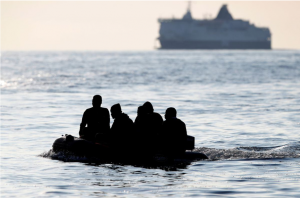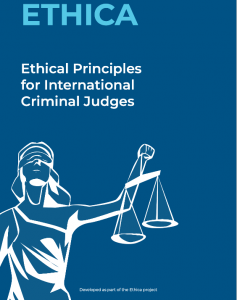By: Christina Bradic
Impunity Watch News Staff Writer
UNITED KINGDOM – On December 5, 2023, the government of the United Kingdom responded to a November Supreme Court decision, declaring the UK and Rwanda Migration and Economic Development Partnership unlawful. They signed a new treaty that will relocate migrants arriving in the United Kingdom to Rwanda for asylum processing and thereby barring their return to the United Kingdom.
 |
According to The Migration Observatory at the University of Oxford, approximately 46,000 people crossed the English Channel in 2022 in small boats, with over 90 percent of those people making claims for asylum. In response to the large number of migrants crossing the English Channel, the British Government proposed a plan in April 2022 that would deport migrants arriving in the United Kingdom to the country of Rwanda for asylum processing and relocation. There, Rwandan officials would oversee Asylum conditions and decisions. Under the UK and Rwanda Migration and Economic Development Partnership, the United Kingdom would provide Rwanda up to £120 million ($152 million USD) over five years.
The first flight to deport migrants to Rwanda was scheduled for June 14, 2022. However, on the morning that the flight was scheduled to depart for Kigali, the European Court for Human Rights issued an injunction against the United Kingdom, prohibiting the flight until there was further investigation into the legality of the policy.
On December 19, 2022, the High Court of England and Wales ruled that the policy was legal and did not breach Britain’s obligations under the U.N. Refugee Convention or other international agreements. On June 29, 2023, a Court of Appeals of England and Wales overruled the lower court decision, declaring the deportation plan as unlawful and violating the European Convention on Human Rights (ECHR). This decision was unanimously upheld by the U.K. Supreme Court on Nov. 15, 2023.
At the heart of the decision is not whether relocation to a third country is lawful; the Supreme court has affirmed that sending migrants to a safe third country is not illegal in itself. However, the European Court for Human Rights has declared that when asylum applicants can arguably claim that there is no guarantee that their asylum applications would be seriously examined by the authorities in the third country, and that there could be a possible violation of Article 3 of the U.N. Refugee Convention, that relocation is unlawful. This is the stance the U.K. Supreme court has taken regarding Rwanda.
The U.K. Supreme Court ruled that current Rwandan policy risks violations of Section 3 of the United Kingdom’s Immigration Act of 1971. The Act states that a country is only considered a “safe third country” if there is not a policy of refoulment. The act of returning asylum seekers to a country where their life or freedom would be threatened on the basis of race, religion, nationality, membership of a particular social group or political opinion, there is risk of inhumane torture or treatment. The court also stated the policy was at risk of violating Section 6 of the Human Rights Act 1998 requiring asylum claims to be properly determined under human rights law.
The court cited political repression in Rwanda, political killings, Rwanda’s total rejection of all asylum applications from Afghanistan, Syria, and Yemen between 2020 and 2022.
In response to the Supreme Court ruling, on December 5, the British Home Secretary, James Cleverly, and the Rwandan Foreign Minister, Vincent Biruta, signed a migration treaty that is binding under international law. The treaty addresses concerns raised by the U.K. Supreme Court, including prohibiting refoulment, setting up an independent monitoring committee and an Appeal Body, comprised of judges with humanitarian protection expertise, representing multiple nationalities. Cleverly stated, “Rwanda cares deeply about the rights of refugees.”
Critics say that the treaty is the British government’s plan to circumvent a human rights ruling of the Supreme Court, making it discreditable and susceptible to being overturned.
For further information, please see:
Aljazeera – UK home secretary signs new asylum treaty in Rwanda – 5 Dec. 2023
Barron’s –The UK’s Rwanda Migration Policy: A Timeline – 5 Dec. 2023
BBC News – Supreme Court rules Rwanda asylum policy unlawful – 15 Nov. 2023
BBC News – What is the UK’s plan to send asylum seekers to Rwanda? – 5 Dec. 2023
CNN – UK’s Rwanda deportation plan ‘unlawful,’ court of appeal rules – 29 Jun. 2023
GOV.UK – Treaty signed to strengthen UK-Rwanda Migration Partnership – 5 Dec. 2023
Royal Courts of Justice – AA-v-SSHD judgment – 29 Jun. 2023
The Guardian – What is the ECHR and how did it intervene in UK’s Rwanda flight plans? – 15 Jun. 2022
The Migration Observatory – People crossing the English Channel in small boats – 21 Jul. 2023



